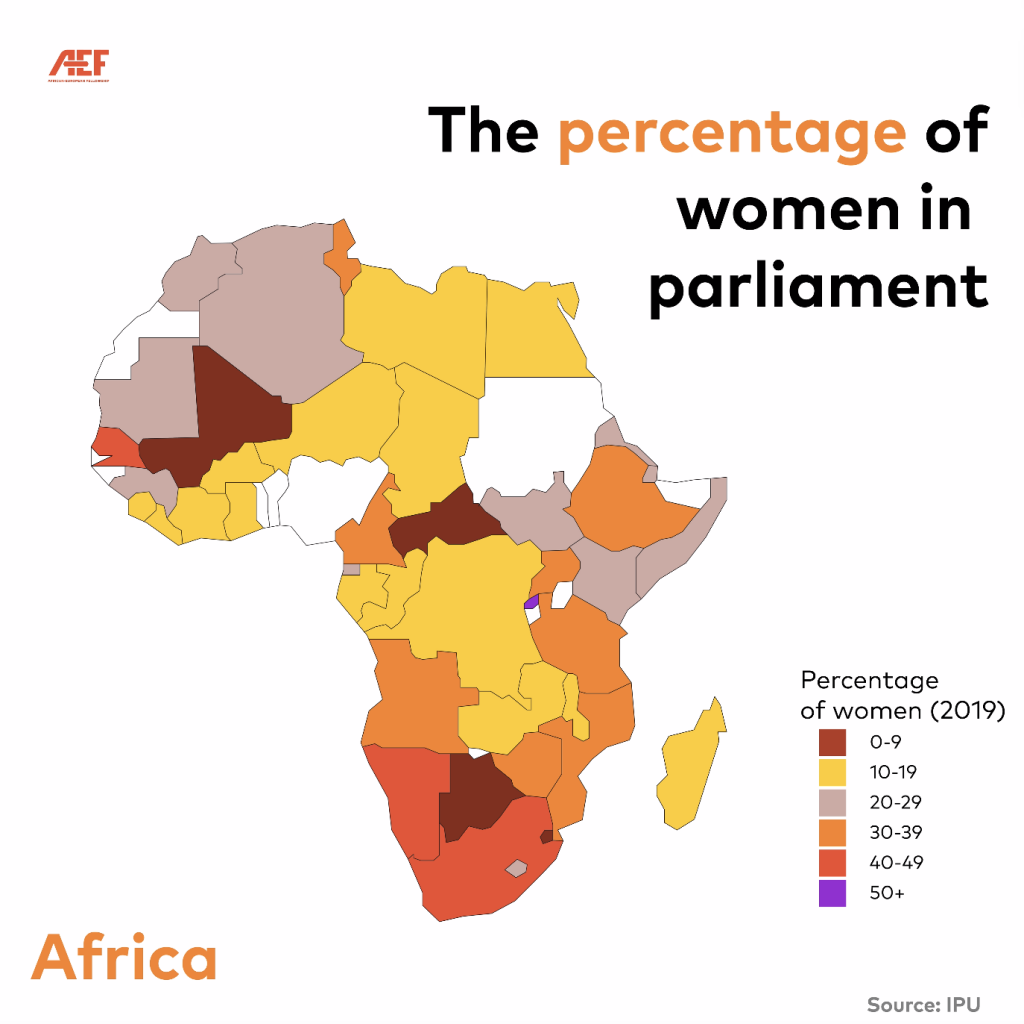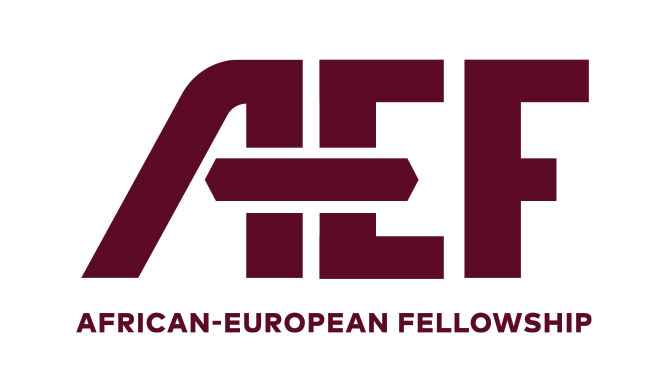

We've ASKED THE AFRICAN EUROPEAN FELLOWSHIP TO SHARE THEIR OPINION ON THIS PROJECTION. HERE'S THE INFORMAL CHAT:
The specific percentages of women in parliament differ all across Europe and Africa, however we can clearly see that they are almost always in the minority (except in one country – Rwanda). This illustrates that this is an issue that needs to be dealt with globally. In addition, the problem of gender inequality isn’t measurable in each country by the percentage of women in their parliament. Consequently, although Rwanda is the world leader in the representation of women in parliament, we cannot declare that Rwanda is automatically a country with no gender inequality. This issue is a very complex one, and one that requires great strides to help solve. One of the United Nations’ Sustainable Development Goals for 2030 is gender equality and yet it seems as though there is a very long way to go for both of these continents as well as the world. As the younger generation enters the workforce, we can hope that they bring the necessary mindsets with them and help change society for the better.

Rahel Haile
Israel
If I am not mistaken, South Africa is in the top 10 in the world. There is a huge transformation in our Parliament as far as Gender is concerned. However, in my opinion, this does not translate the same in the corporate world. Although the women in parliament have the opportunities to change the policies that can empower women, this has been a very slow process. Most executive positions in big corporates are still retained by white males, unfortunately. And when looking at the women in parliament, there is a huge shortage of youth, in South Africa. A huge percentage of the women in our parliament is made up of women who have been part of the struggle even before most of us were born. To me, that is not diversity.

Phumzile Mtshali
South Africa
The European Parliament named its main building in Strasbourg after Louise Weiss, in recognition of her lifelong support of European values and for championing woman rights. Indeed, a great symbolic act; but, today, women only fare 36% at the European Parliament – a clear under representation. The Pan-African Parliament from the African Union dictates that each delegation, which consists of five People (if I'm not mistaken), has to be made up of at least two women. A great act - hopefully not only a symbolic one.

Sebastian Woller
Germany
In general Leadership roles for women in politics are very important and emphasizes their independence. In Africa, when living with their husbands most women neglect their chances to become a representative of their country for instance and this is because they see their position as a housewife as a priority. And I think As soon as they somehow develop an interest in politics, it’s too late.
Therefore, politics should be made more appealing to young black women before they even get married.
In both cases (Africa and Europe ) I think one can notice a north-south division just that in Africa the south is (mostly)characterized by high percentages of women in parliament whereas in Europe it’s the opposite (high percentage of women can be seen mostly in the north).

Ryana Twumasi H.
Germany
The percentage of women in parliament2019-05-102019-08-14https://ae-fellowship.com/wp-content/uploads/2020/03/aef-logo.jpgAEFhttps://ae-fellowship.com/wp-content/uploads/2019/05/joakim-honkasalo-587350-unsplash-e1559139291171.jpg200px200px
Showing 2 comments
Leave a Comment Cancel reply
You must be logged in to post a comment.



Thank you, Leota! If you ever want to know more about a certain topic, please reach out to us.
Your place is valueble for me. Thanks!…